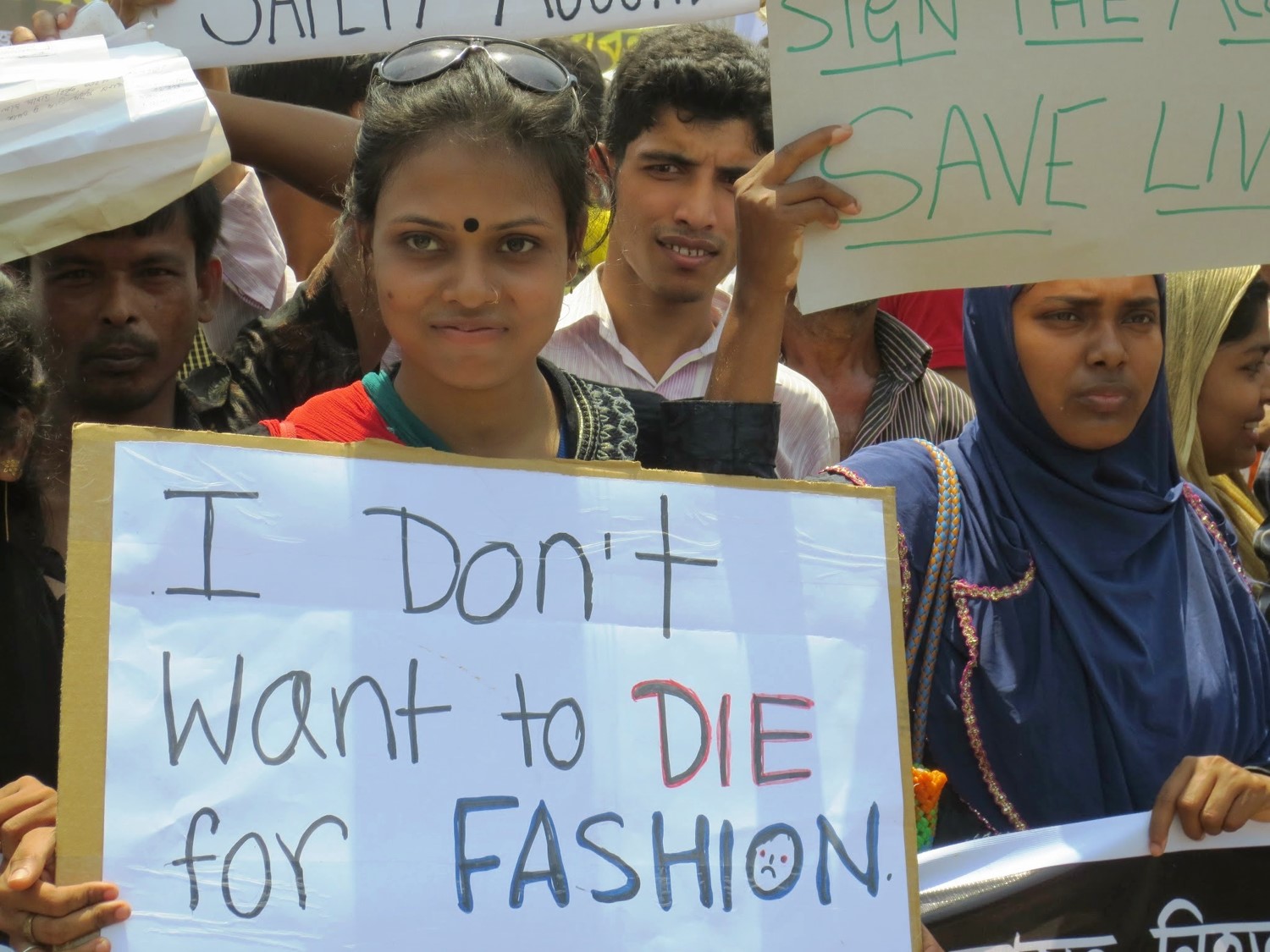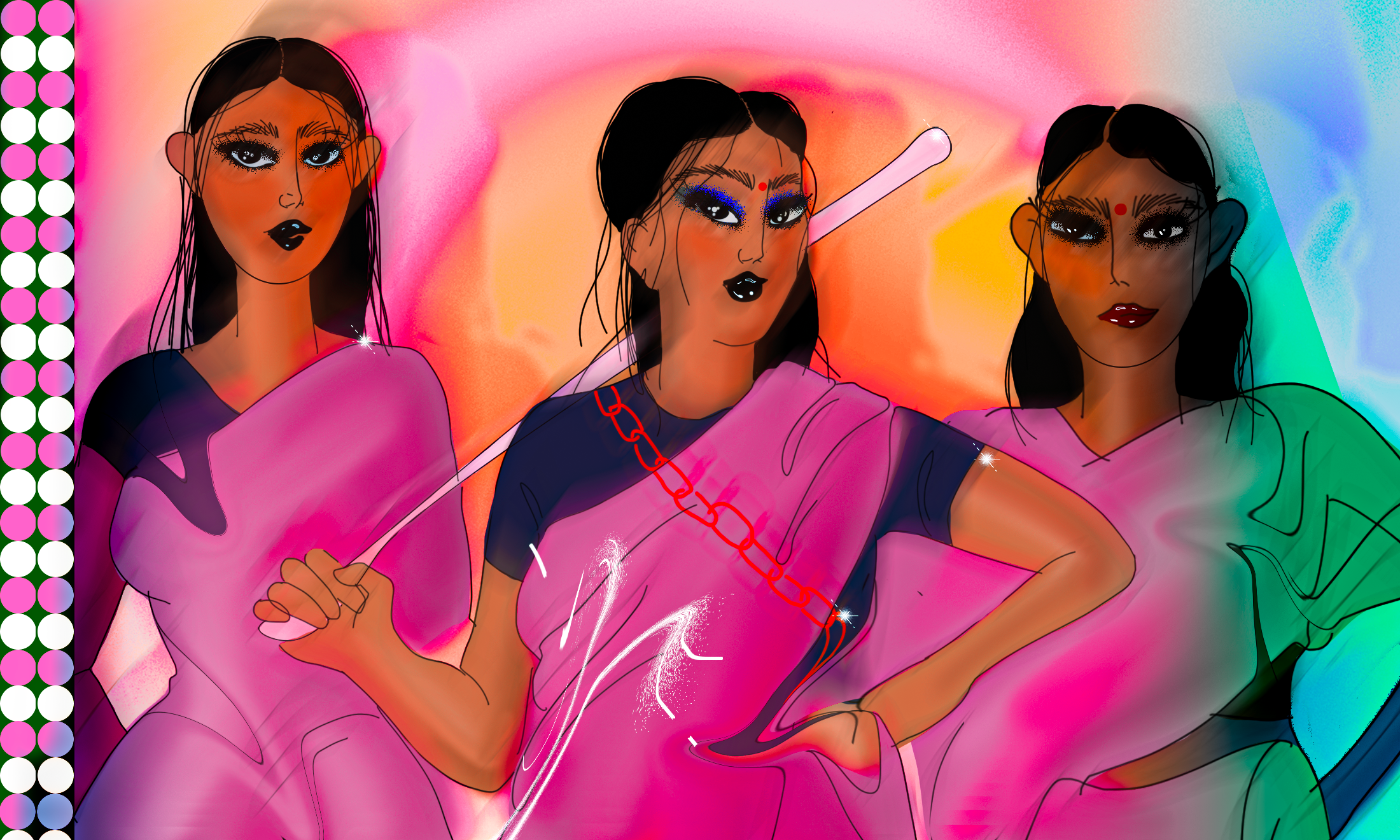
Image via Solidarity Center/Creative Commons
We’re only three weeks into 2019, and across the Global South garment workers in their tens of thousands have already mobilised in protest against issues regarding their working conditions.
In Dhaka, Bangladesh, 50,000 workers walked out of their factories to demand higher wages. This came after the government increased the minimum wage in response to pressure from workers. However, at 8000TK per month (approximately £74), this increase fails to accommodate for the increase in living expenses in Dhaka, and is lower than the amount initially demanded. So far, one worker has been killed and 50 have been injured as the police use rubber bullets, tear gas and water cannons in attempts to disperse the protesters.
During the same period, in Cambodia 1,200 workers went on strike as their employer attempted to deny owed payments. The factory demanded employees return to work or face dismissal, but the majority of workers stood firm and ignored these demands, resulting in their contracts being torn up. They continued to protest regardless.
“In India, around 200 million workers held a historic two-day nationwide strike against the ongoing stripping of their rights”
Protests also emerged in India, where around 200 million workers held a historic two-day nationwide strike against the ongoing stripping of their rights, as a result of anti-labour policies implemented by the Prime Minister Narendra Modi’s government. The striking workers represented a range of sectors, including the garment industry, transport, and mining, with large numbers of informal workers also taking part. It is reported to have been the largest strike ever in history.
While these protests were not intentionally organised to occur at the same time, they all stem from the same root causes implemented by the imperial powers of the Global North. These leaders, under the guise of promoting “development” in countries in the Global South, have endorsed export-led strategies, based on selling manufactured goods abroad, as a means of boosting economic development. These strategies are implemented alongside neoliberal policies, which at heart aim to reduce state power over the economy in Global South countries, placing power in the hands of multinational corporations in the Global North. The reason often given is a perception that state regulation stalls economic growth. However, in reality this means that poorer countries largely rely on foreign investment from big corporations in order to ensure economic development, creating a relationship of dependency. This relationship means that the Global South is required to meet the demands of corporations to ensure their continued investment.
With little state regulation, corporations exploit the dependency the south has on their investment, conducting business in a way that benefits their profit-driven motives, regardless of the consequences it has on the workers producing their goods. As a result, corporations are able to evade labour laws, and a bid to cut labour costs results in labour rights violations and abusive working conditions, as well as the continued repression of worker protests. If governments in the Global South begin to regulate corporations entering their countries, they risk corporations moving to other countries that have less regulations. This explains why there has been an increase in corporations setting up in countries such as Myanmar.
“As the clothing industry attempts to sidetrack us with ethical fashion as a means of ending exploitation, the situation worsens.”
It is evident that corporations’ commitments to reducing labour costs for their profit promotes the ongoing repression of workers. Brands can make statements condemning governments and factory employers for violence towards workers all they want, but if they truly cared about their workers they would invest in their workforces and help prevent an environment that encourages this hostility.
As the clothing industry attempts to sidetrack us with ethical fashion and “being the change” as a means of ending exploitation, the situation worsens. Just last year, a report found that top fashion brand CEOs earn in just 4 days what a Bangladeshi garment worker earns in a lifetime. Multinational corporations need to stop hiding behind diversity and representation campaigns, and focus on ensuring the safety of their workers instead. Having people of colour in a campaign means nothing if the same brand is profiting from the repression of people of colour elsewhere.
Individual ethical practices will not be the change. Change is effected from giving support and solidarity to workers who are making the real changes themselves. We need to amplify the exposure of corporations’ unethical practices, and demand they take accountability for their actions. On a larger scale, imperial control, immeasurable power in the hands of corporations via capitalism, and the neoliberal policies behind exploitation in the garment industry need to be addressed.
This week has been nothing but symbolic of the fact that multinational corporations are slowly losing their grip on workers in the Global South. Garment workers are leading a revolution, and the Global North in its silence is lagging behind with any effective means of solidarity.
Join the protest by Labour Behind the Label on Wednesday 30th January 2019 in front of the Embassy of Bangladesh in London to underscore concerns over the current repression of garment worker strikes, low wages and the possible closure of the Bangladesh Accord.









